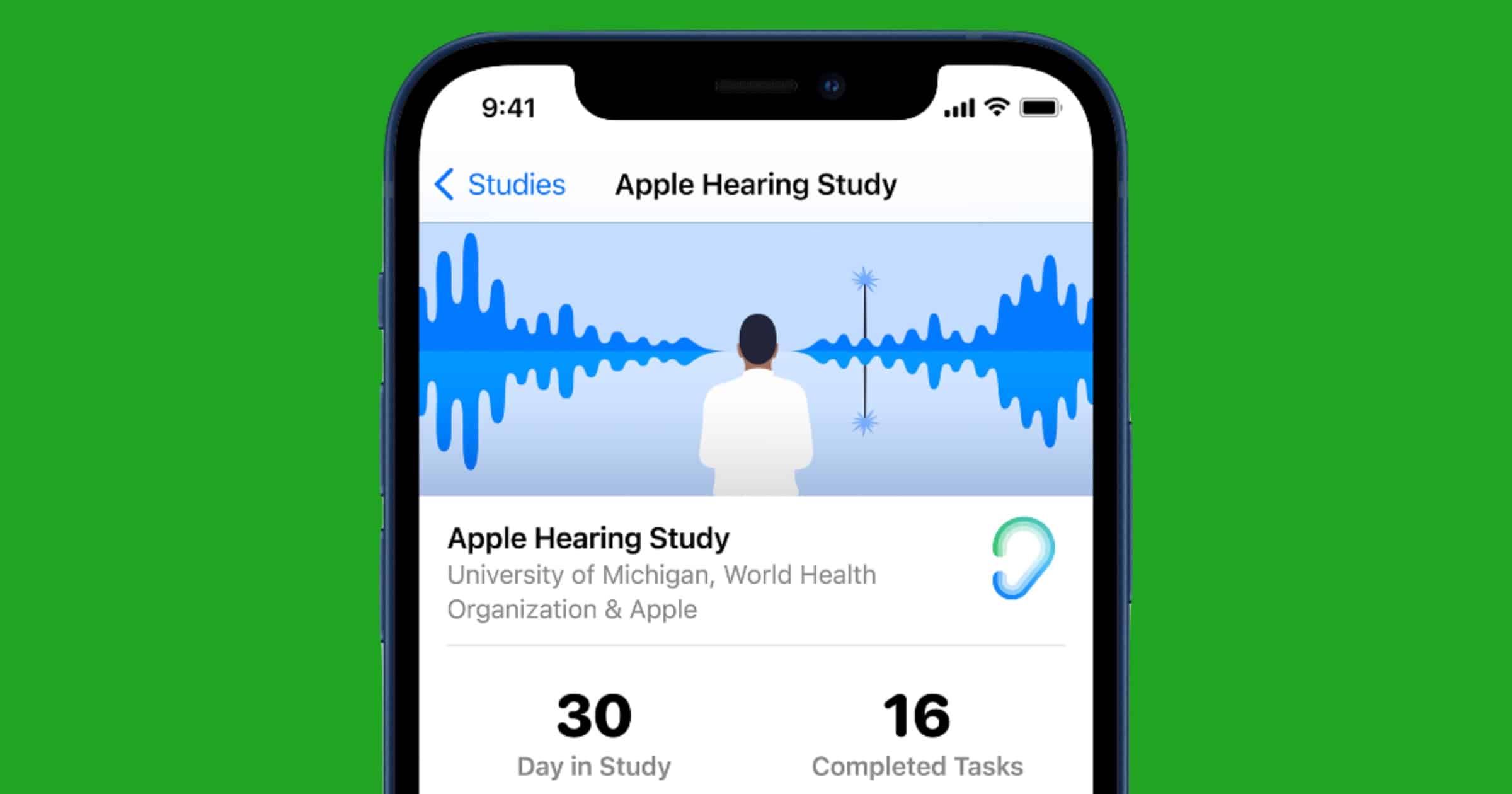The Apple Hearing Study has shared statistics from its participants (n=unknown) showing many experience dangerous sound levels. By 2050, the WHO estimates more than 700 million people globally will experience profound hearing loss.
Apple Hearing Study
The Study is being conducted in collaboration with the University of Michigan School of Public Health, and data is being shared with the World Health Organization’s Make Listening Safe initiative. Here are some statistics found so far:
- 25% of participants experience a daily average environmental sound exposure (which can include traffic, machinery, public transport, and so on) that is higher than the WHO recommended limit.
- Nearly 50% of participants now work, or have previously worked, in a loud workplace.
- Average weekly headphone exposure for one in 10 participants is higher than the WHO recommended limit.
- About 10% of Apple Hearing Study participants have been diagnosed with hearing loss by a professional. Of these, 75% do not use assistive support such as a hearing aid or cochlear implant, even though such devices can help reduce the impacts of hearing loss.
- 20% of participants have hearing loss when compared to WHO standards, and 10% have hearing loss that is consistent with noise exposure.
- Nearly 50% of participants haven’t had their hearing tested by a professional in at least 10 years.
- 25% of participants experience ringing in their ears a few times a week or more, which could be a sign of hearing damage.
Rick Neitzel, associate professor of environmental health sciences at the University of Michigan School of Public Health:
Even during this pandemic, when many people are staying home, we’re still seeing 25 percent of our participants experiencing high environmental sound exposures. The results of this study can improve our understanding of potentially harmful exposures, and help identify ways that people can proactively protect their hearing.
